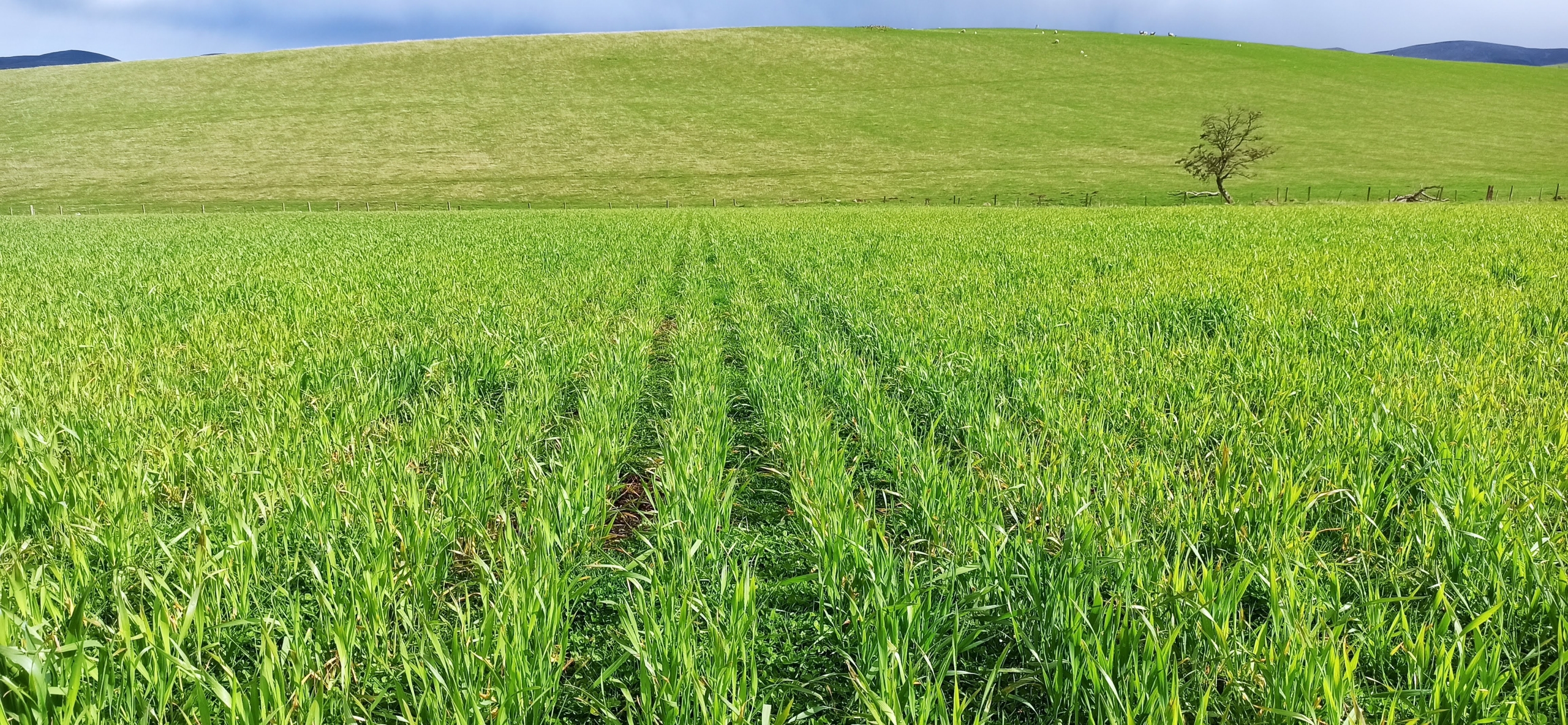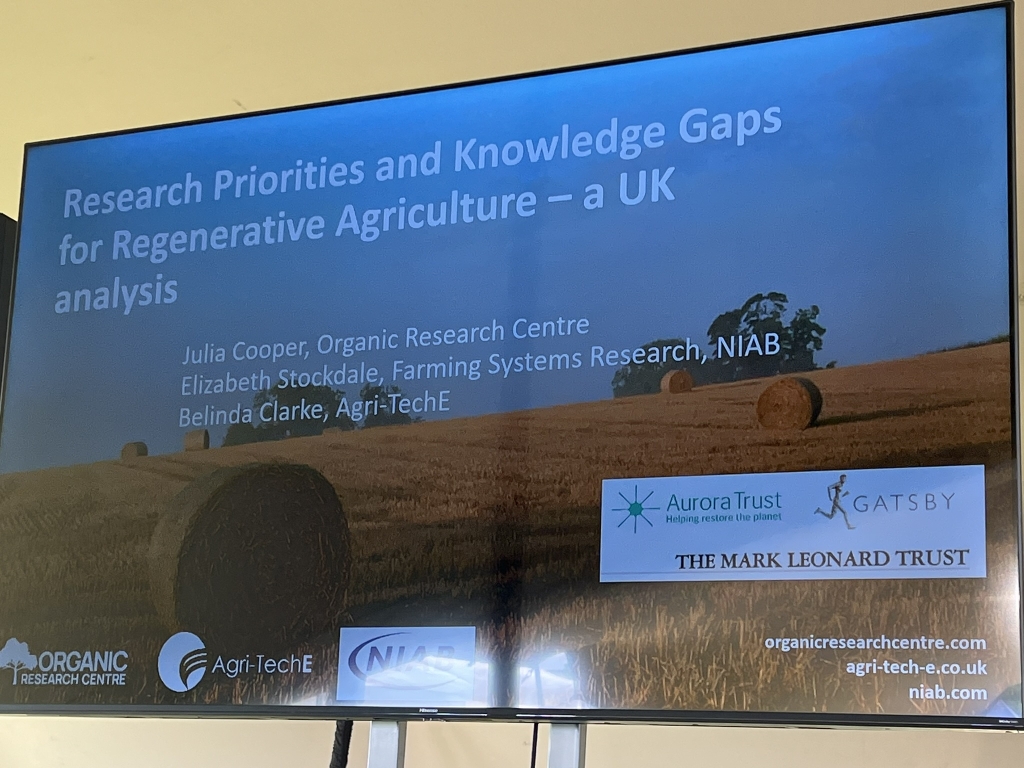Contract Period : 01/10/2023 - 30/04/2024
Main Funder : Sainsbury Family Charitable Trusts (Aurora Trust, Mark Leonard Trust and Gatsby Charitable Foundation)
ORC Staff Contact : Julia Cooper

Regenerative agriculture, or ‘regen ag’, is a grassroots movement and set of farming practices that emphasises building soil health and delivering a range of societal benefits, including mitigation of climate change and promotion of biodiversity. While the practices are very similar to those promoted by organic farmers over the past 50-60 years and more recently within the frame of conservation agriculture, the re-packaging of these principles and practices into regen ag and effective promotion, particularly by individuals like Gabe Brown in the United States, and a range of innovative farmers in the UK, has accelerated the spread of regen ag as a movement. In the UK, this has been evidenced by the growing popularity of farmer-led events like Groundswell and Carbon Calling.
Supporting sectors, including researchers and advisors, have responded to the movement through projects and activities that explore the underlying science behind regen ag and promote analysis of soils and systems through the lens of soil biology.
This project used a rapid evidence review approach to compile a list of topics seen as challenges to the development of regenerative agriculture in the arable sector in the UK and assessed the current quantity and relevance of evidence for each of these topics. This has resulted in a gap analysis that can be used to identify priorities for research in regenerative agriculture in the UK.
In the first phase of the project, stakeholder interviews and a workshop were held to compile a preliminary list of topics grouped under the following themes: agronomy, variety development, soil, climate change/mitigation, system design, and economics. A comprehensive database was built listing projects, key stakeholders and organisations, ongoing experiments, and past reports from bodies like Defra and AHDB. A report summarising the outcomes of the first phase of the project is available here .
This report served as a basis for discussions at the Cambridge Future of Agriculture Conference (March 2024), which was a unique platform for farmers, farmer organisation representatives, and scientists to openly discuss and shape future research needs.
Following the Cambridge conference, the list of priorities was further refined to a total of 34 topics, grouped under the following headings:

The findings of the project were presented at Groundswell 2024 in a session that included a presentation of results on the recent review of farmer research priorities conducted by the Agricultural Universities Council UK.
Researchers, policymakers, and funders should be able to use the results of this project to shape future projects and programmes to support the transition to more regenerative farming systems in the UK.
At the final stage of the project, the state of knowledge for each topic was carefully scrutinised, taking into consideration the number and scope of ongoing projects, coverage in the grey literature, and quantity and relevance of peer-reviewed studies. Topics were considered a high priority for research if they had been identified by stakeholders as important and if there was a lack of UK projects or research in that area. The outcomes of this project are summarised in this report as a comprehensive in depth analysis of state of knowledge and gaps on the challenges that were refined at the Cambridge Future of Agriculture Conference.
Detailed summaries of the outcomes of the survey and discussion during the workshop along with the knowledge gaps, were synthesised into 6 challenges and 34 sub-challenges. Because of the diverse topics and range of study types identified in the peer-reviewed literature, a narrative synthesis approach was used to summarise the findings for each topic. This focussed on descriptive (rather than numerical) summaries of the findings highlighting themes where the research results appeared to converge or diverge.
The six challenges areas identified below and available as separate publications to present the findings of each challenge.
This project has provided a unique opportunity to consolidate our understanding of the current status of knowledge and practices linked to regenerative agriculture including soil health, organic farming practices and integrated farming methods and identify knowledge gaps.
The final report provides a valuable reference that can be used to launch future targeted research and knowledge exchange activities to support the widespread uptake of regenerative farming methods across the agricultural industry.
ORC is the project lead.
Project Lead: ORC
NIAB (Elizabeth Stockdale) and Agri-TechE ( Belinda Clarke)